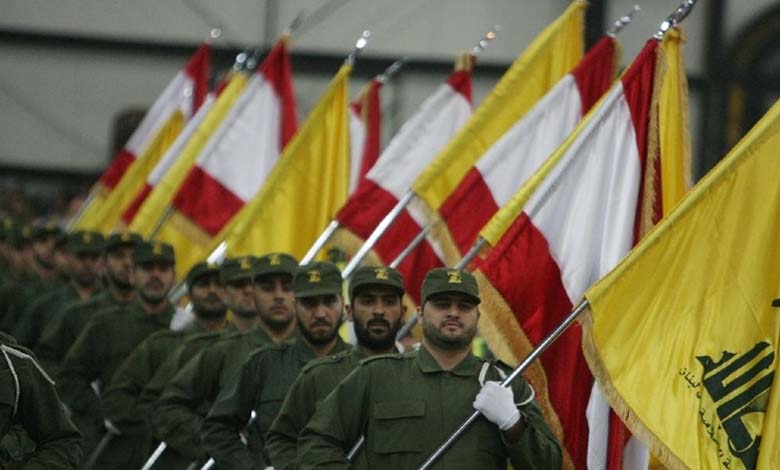Hezbollah’s Response to Chokr’s Assassination Eased Tensions
The U.S. Joint Chiefs of Staff Chairman stated that how Iran responds will be a key factor in determining Israel's response, which will, in turn, influence whether the conflict expands.

General C.Q. Brown, U.S. Chairman of the Joint Chiefs of Staff, said the short-term risks of the war in the Middle East expanding have somewhat decreased after Israel and Hezbollah in Lebanon exchanged fire without further escalation. However, Iran still poses a significant threat as it considers striking Israel.
-
Washington Post reveals how Lebanese pay the price for Iranian threats and ongoing Hezbollah-Israel clashes
-
Hezbollah Bets on Tunnel Warfare in Confrontation with Israel
Brown made these remarks after a three-day trip to the Middle East, where he visited Israel just hours after Hezbollah launched hundreds of rockets and drones at Israel, with the Israeli military responding by bombing Lebanon to thwart a larger attack.
This was one of the largest border skirmishes in over ten months, but it also ended with limited damage in Israel, with no immediate threats of further retaliation from either side.
-
Can Israel Deter Hezbollah? Dark Scenarios for a Potential Confrontation
-
New U.S. Sanctions Targeting Yemeni Houthis and Lebanese Hezbollah
Brown noted that Hezbollah’s attack was just one of two major offensives it had threatened to launch against Israel in recent weeks. Iran also threatens to attack in response to the killing of a Hamas leader in Tehran last month.
When asked whether the risk of a regional war had lessened, Brown said, “To some extent… yes.” He added that Iran’s response will largely determine Israel’s, which will, in turn, influence whether the conflict expands.
-
Crisis Between Defense Minister and Army Chief Amid Heightened Tensions Between Hezbollah and Israel
-
12 Hours of Chaos in Israel “Saved” Hezbollah from a Potential Strike
Brown also warned of the dangers posed by Iran’s armed allies in countries like Iraq, Syria, and Jordan, who are attacking U.S. forces, as well as the Houthis in Yemen, who are targeting shipping in the Red Sea and have launched drones at Israel.
He raised the possibility that some of these groups, particularly the Houthis, are acting as proxies for other powers.
-
Israel avoids total war in response to Hezbollah
-
Know Hezbollah’s “Primitive” Tactics in Confronting Israeli Technology
Iran has vowed harsh retaliation for the assassination of Hamas leader Ismail Haniyeh while he was visiting Tehran late last month, blaming Israel for the attack. Israel has neither confirmed nor denied involvement.
Brown emphasized that the U.S. military is better prepared to defend Israel and its forces in the Middle East compared to April 13, when Iran launched an unprecedented attack, firing hundreds of drones and ballistic missiles. However, Israel, the U.S., and other allies managed to destroy nearly all the weapons before they hit their targets.
-
Violent Clashes Between Hezbollah and Israel Amid Preparations for Total War in Southern Lebanon
-
Israel and Hezbollah: Is Confrontation Inevitable?
He mentioned that the U.S. has decided to keep two carrier strike groups in the region and deploy an additional squadron of F-22 fighter jets. “We’re trying to improve on what we did in April,” Brown said.
However, he emphasized that the final decision on military actions will rest with Iran’s political leaders, stating that Iran wants to send a message but also likely wants to avoid escalating the conflict.
-
Leaks from the Secret Meeting: Iran Refuses to Support Hezbollah and its Iraqi Militias Against Israel
-
Assassinated in a Night Raid on Southern Lebanon: Who is the Senior Hezbollah Military Leader Taleb Abdullah?
The Biden administration is working to contain the fallout from the ongoing war between Hamas and Israel, now in its eleventh month. The conflict has devastated large areas of Gaza, sparked clashes at Israel’s border with Hezbollah in Lebanon, and drawn in the Houthis from Yemen.
Brown also visited the Israeli military’s northern command and received a briefing on threats along the borders with Lebanon and Syria. In Tel Aviv, he met with Israeli Defense Minister Yoav Gallant and Chief of Staff Hertzi Halevi.
-
Dangerous Escalation: Hezbollah Targets Israeli Fighter Jets for the First Time Since the War Began
-
Hezbollah Faces Internal Dissent and Divisions
Regarding Hezbollah‘s military capabilities following Israeli strikes, Brown warned that the group still possesses significant power.
The current war in Gaza began on October 7, 2023, when Hamas militants invaded Israeli areas, killing approximately 1,200 people and taking around 250 hostages, according to Israeli figures.
Since then, Israel’s military campaign has displaced around 2.3 million people in Gaza, causing widespread hunger and deadly diseases. Palestinian health authorities report at least 40,000 deaths.












